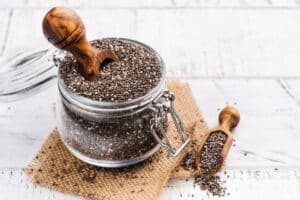In the early 1980s, I had a metal Holly Hobbie lunch box that I carried to school. Each day, when I’d gather in the lunchroom with my classmates, I’d pull out my lunch box, open the lid, and most of the time, I’d find a peanut butter and jelly sandwich. It was hard to appreciate peanut butter in those days. It was routine, expected, and boring. I’d take small bites out of my sandwich while dreaming of a hot lunch like pizza or chicken nuggets.
It’s hard to believe that now, decades later, peanut butter has competitors. For years, peanut butter had a monopoly on the nut butter market, making its first appearance and being publicly sold in 1904 at the St. Louis Word Fair. Now, at least 12 nut butters are readily available to consumers, each contending for their rightful place on the pallets of nut butter lovers worldwide.
Old Faithful: Is Peanut Butter Good For You?
Yes, peanut butter is loaded with many good, health-promoting nutrients, including vitamin E, magnesium, iron, selenium, and vitamin B6. My mom would always say, “Eat your peanut butter sandwich. It will stick to your ribs.” This meant it would keep me full and give me energy. One serving, roughly two tablespoons of peanut butter, contains 8 grams of protein.
The Downside Of Peanut Butter
When considering a nut butter alternative, it’s helpful to understand some of the downsides of peanut butter. First, some people have a peanut allergy, so traditional peanut butter is off-limits. Peanut butter is also high in calories and fat and has some mineral deficiencies. So, while peanut butter is good for some reasons, it’s also worth considering whether another option might be a better choice for you.
Top 5 Nut Butters
Let’s look at the pros and cons of the most popular nut butters on the market so you can decide if it’s time to make the switch – or simply switch it up on occasion!
- Peanut butter
- Almond butter
- Cashew butter
- Pistachio butter
- Coconut butter
1. Peanut Butter
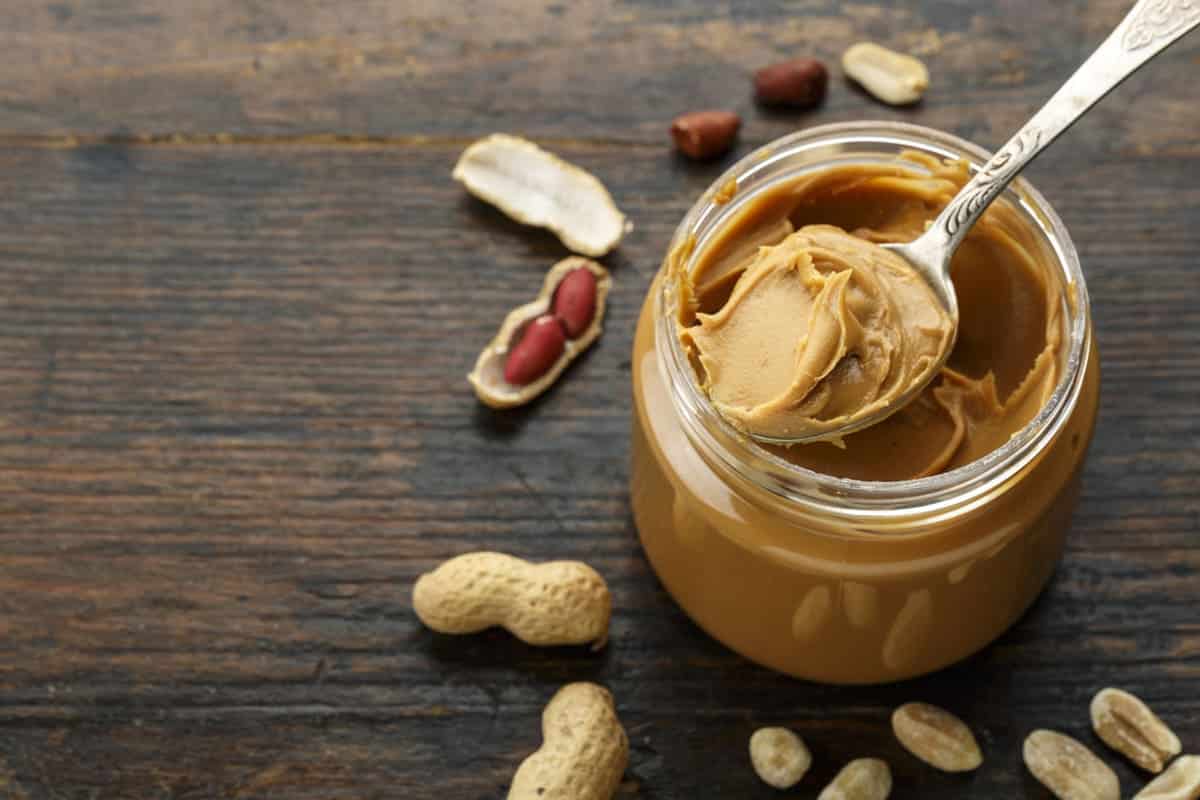
Peanut butter can be a useful nutritional option because it contains several nutrients, including protein and magnesium. Plus, you can get it creamy or crunchy, unsalted or salted, or with or without sugar. The options are seemingly endless.
Peanut Butter Vitamins & Minerals: vitamins E, B3, B6, folate, magnesium, copper, manganese
Nutrition Per 1 Tablespoon Serving:
- Calories: 94
- Protein: 4 grams
- Fat: 8 grams
- Carbohydrates: 3 grams
- Fiber: 1 gram
- Sugar: 1.5 grams
2. Almond Butter
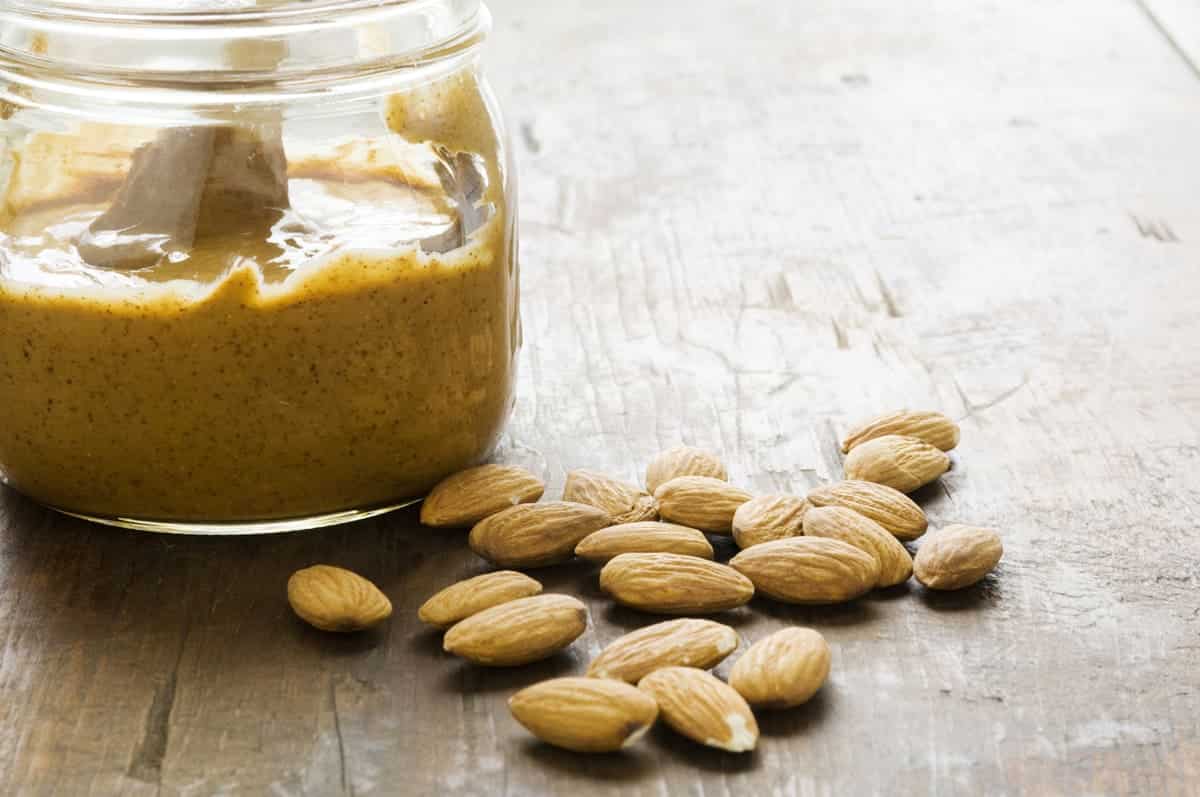
Almond butter is high in monounsaturated fats, which help lower bad cholesterol and raise good cholesterol. Many other nutrients in almond butter also help improve heart health and reduce the risk of heart disease. Almonds (almond butter) can also help control blood sugar and insulin levels after eating.
Almond Butter Vitamins & Minerals: potassium, calcium, manganese, magnesium, iron, vitamin E, omega-3 fatty acids, plant sterols, and L-arginine
Nutrition Per 1 Tablespoon Serving:
- Calories: 98
- Protein: 3.4 grams
- Fat: 9 grams
- Carbohydrates: 3 grams
- Fiber: 1.6 grams
- Sugar: 0.7 grams
3. Cashew Butter
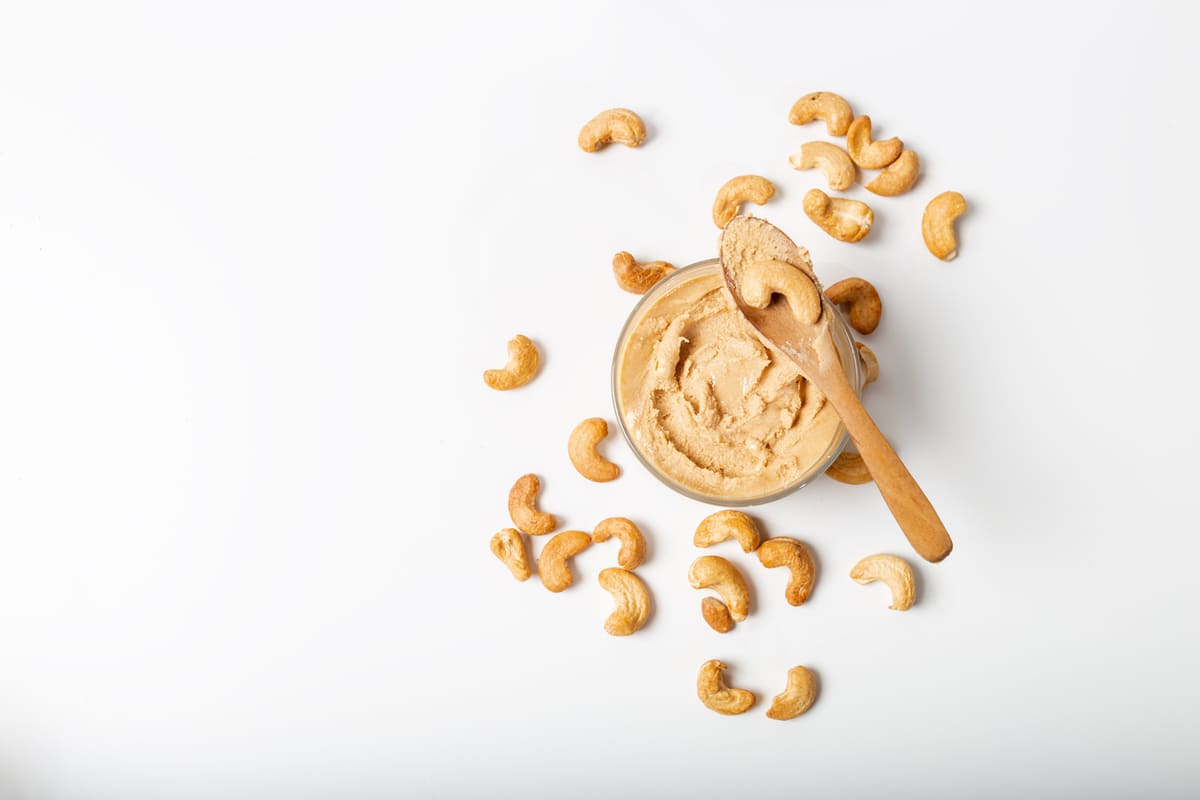
Although it doesn’t contain omega-3 fatty acids, cashew butter is one of the best sources of monounsaturated fatty acids, essential amino acids, and magnesium. These nutrients are beneficial for blood pressure, sugar and cholesterol control, bone health, the immune system, and metabolism.
Cashew Butter Vitamins & Minerals: calcium, iron, magnesium, phosphorus, potassium, sodium, zinc, copper
Nutrition Per 1 Tablespoon Serving:
- Calories: 94
- Protein: 4 grams
- Fat: 8 grams
- Carbohydrates: 3 grams
- Fiber: 1 gram
- Sugar: 1.5 grams
4. Pistachio Butter
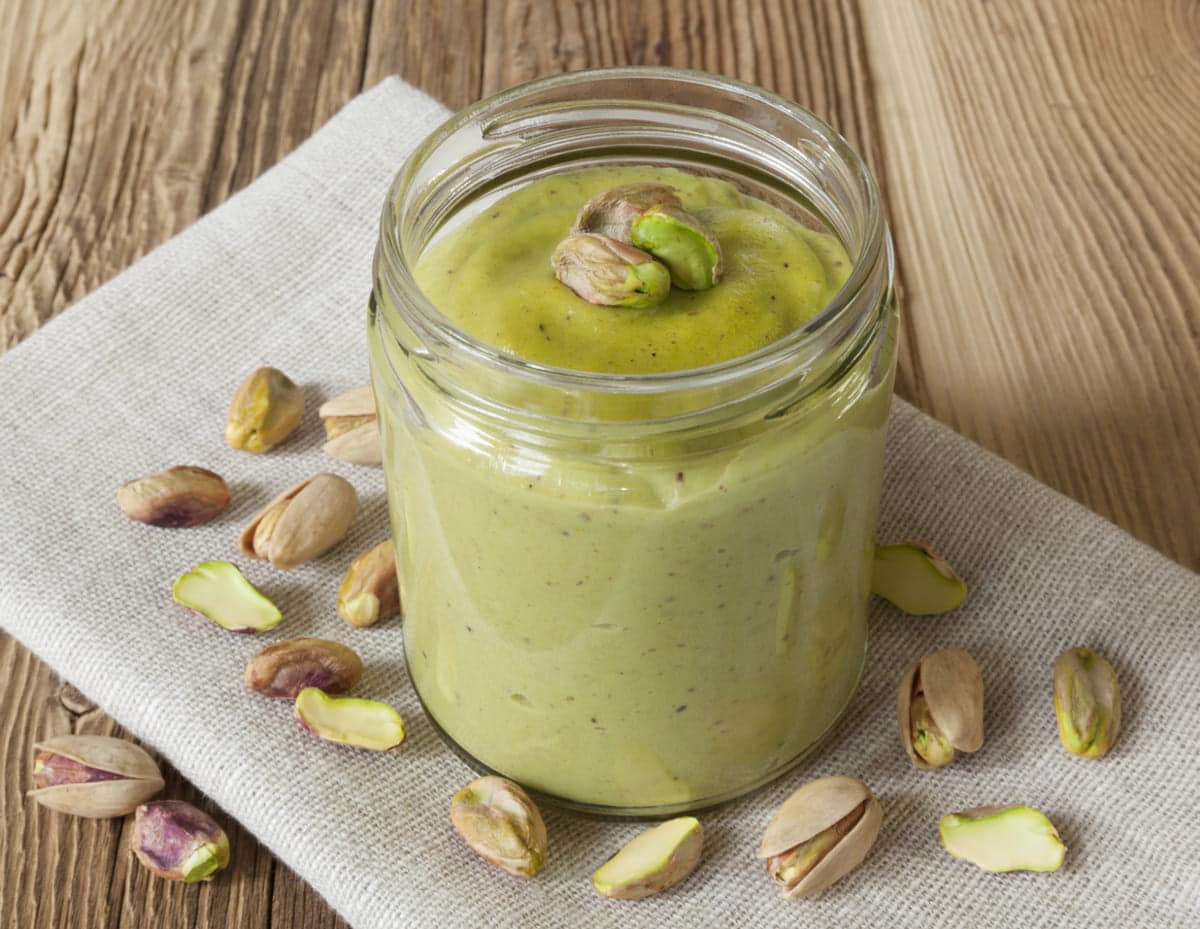
Pistachio butter is lower in calories per serving than other nut butters. So, if you’re looking to cut calories, pistachio butter might be the way to go! Compared to peanut butter, pistachio butter contains significantly more vitamin A, vitamin B6, calcium, iron, phosphorus, and potassium, but it has less zinc, sodium, and niacin.
Pistachio Butter Vitamins & Minerals: vitamins A, B6, calcium, iron, phosphorus, potassium, fiber
Nutrition Per 1 Tablespoon Serving:
- Calories: 90
- Protein: 3 grams
- Fat: 6.5 grams
- Carbohydrates: 4.5 grams
- Fiber: 1.5 grams
- Sugar: 1 gram
5. Coconut Butter
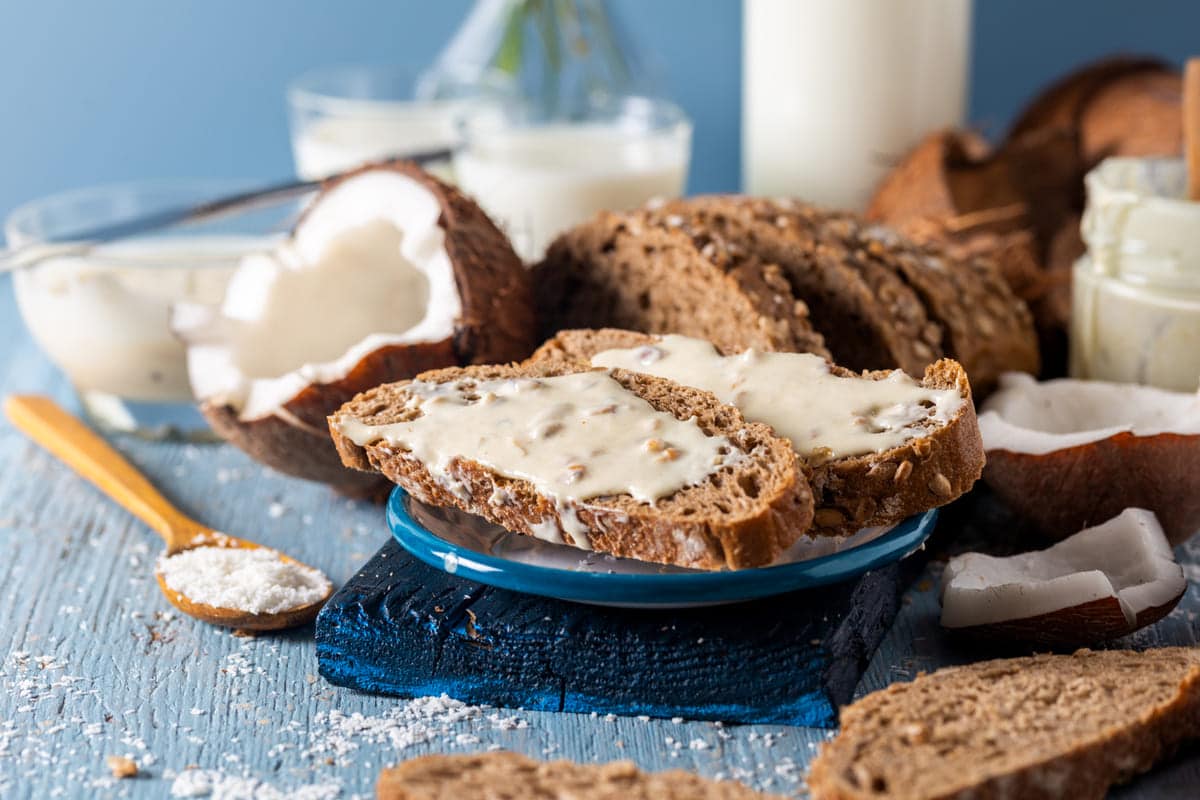
Coconut butter can help with weight loss, boost immunity, ward off viruses, and prevent heart disease. It may also give athletes a performance boost.
Coconut Butter Vitamins & Minerals: vitamins A, C, potassium, magnesium, iron, calcium, fatty acids, amino acids
Nutrition Per 1 Tablespoon Serving:
- Calories: 93
- Protein: 1 gram
- Fat: 9 grams
- Carbohydrates: 3.5 grams
- Fiber: 2.5 grams
- Sugar: .95 gram
The Takeaway: What’s the best nut butter for you?
It’s important to understand that there are a variety of benefits to each type of nut butter. Peanut butter still reigns supreme if your objective is to get the most protein per serving. However, if your goal is to reduce your carbs, almond butter has a low net carb count and more fiber per serving than most common nut butters.
For example, here are some nut butter recommendations based on what your specific needs, goals, and objectives might be:
Highest Protein: peanut butter
Lowest Carb: almond butter
Good for Diabetics: peanut butter, almond butter, cashew butter
Good for Energy: pistachio butter
For Muscle Gain: peanut butter, almond butter
Nut butters have been proven to be an amazing source of nutrition and a balanced diet, providing you with many options for a variety of health and wellness goals.
Top Options in the Nut Butter Categories
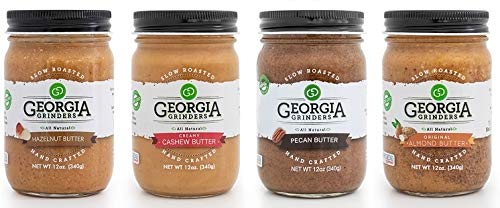
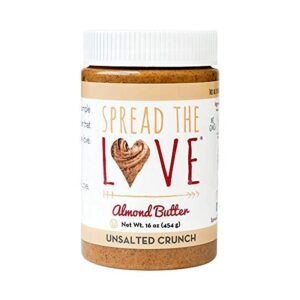
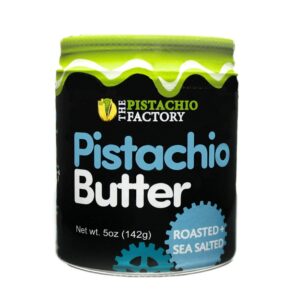
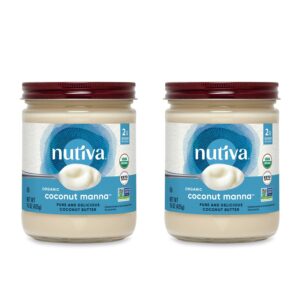
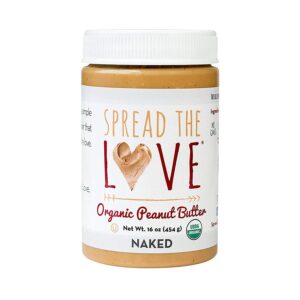
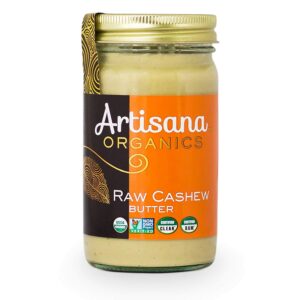
Read Next:


